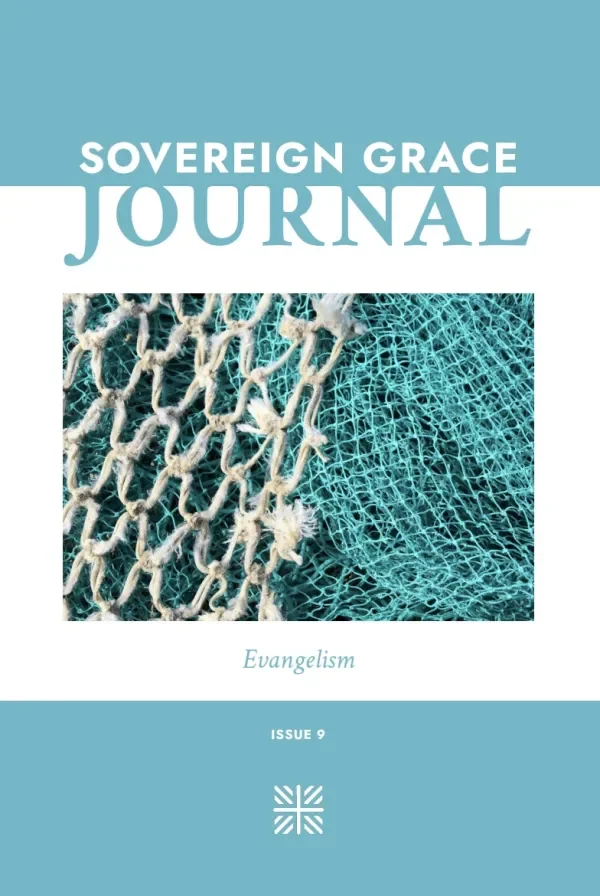As if we hadn’t had enough daggers plunged into our hearts, here’s one more—You are condemned before God, and there’s nothing you can do about it. It’s the concluding exclamation point that summarizes everything Paul has said up to this point. Below is an outline summary of the sermon for your further study and deeper reflection.
SERIES: Romans: The Power of God in the Gospel of Christ
TEXT: Romans 3:20
TITLE: No Way Out
PREACHER: Derek Overstreet
BIG IDEA: We are helpless, but we are not hopeless.
POINTS:
I. What We Need Most
II. What We Can’t Do
SERMON EXCERPTS:
All quotes and text emphasis are taken directly from the pastor’s notes.
“In 1:18 we entered the dark tunnel of humanity’s condition apart from Christ. The message is clear and brutal. Everyone is guilty and stands condemned before God. The Jew and the Gentile—guilty. You and me—guilty. Your boss and co-worker—guilty. Your teacher or professor—guilty. Your favorite uncle—guilty. Your dear old aunt—guilty. Your kindest neighbor—guilty. Your local Barista—guilty. Your barber—guilty. The Apostle Paul—guilty. The most loving and giving person you have ever met—guilty. Everyone is guilty and deserving of God’s eternal wrath and no one has anything they can say in their defense. As 19 says—every mouth is shut.”
“So Paul concludes: (20) For (Therefore) by works of the law no human being will be justified in his sight, since through the law comes knowledge of sin. As if we hadn’t had enough daggers plunged into our hearts, here’s one more—You are condemned before God, and there’s nothing you can do about it. It’s the concluding exclamation point that summarizes everything Paul has said up to this point.”
“In light of everything Paul has said about humanity, our one great need is to be justified in the sight of God. We are guilty. The guilty will be condemned to the eternal wrath of God. More than anything else a human being could ever need, justification is needed most. In this: We are helpless, but we are not hopeless.”
“Justified is one of the most precious terms in the Bible. It was crucial to the Reformation, and it is the heart of the gospel.”
“To lose the doctrine of justification is to lose the gospel. And to lose the gospel is to lose the church. Of course, that means as individuals, we stand or fall before God on the doctrine of justification. It’s imperative we understand it, believe it, stand in it, and share it with others.”
“Justification is the removal of our sin and God’s pronouncement that He considers us righteous in His sight.”
“Justification is a legal pronouncement, a judicial declaration by God that we are free of guilt and we stand righteous before Him. He doesn’t make us righteous, He declares us righteous the moment we believe. We aren’t infused with righteousness, we are imputed (clothed) with the righteousness of Jesus.”
ILLUSTRATION: We see this in Zechariah 3
“Think of the perfect righteousness of Christ, provided through his perfect life, draped over you as a robe. The filthy garments (sin) replaced with pure vestments (Christ’s righteousness). God now sees you, not through the lens of your sin, but robed in the righteousness that He requires. Seeing you this way, God can justly declare— ’Derek, you are just before me. There is nothing for me to punish you for because your sins are washed away, and you bear the full righteousness of Christ. You are free to go!’”
“To be justified is more than being forgiven or even pardoned; it means we are totally right with God. It means, as guilty as I am, I stand before God, and He sees me—Just as if I had never sinned, but obeyed Him perfectly in every way. This is the only way to have peace with God (Romans 5:1).”
“We can never talk about justification enough, because our functional tendency is to confuse our sanctification as justification.”
“Here’s a good way to distinguish between the two: Justification is about our position before God. Sanctification is about our practice before God.”
“Justification is one-time declaration that happens the moment we have faith in Jesus and it never changes. Sanctification is about my heart being changed progressively as I learn to live for Jesus as one justified in His sight. Justification is the grounds for our sanctification; sanctification is the fruit of our justification.”
“As we saw in Ch 2, the Jews thought they were able to be justified by the law God gave them. Paul says—No, the works of the law could never justify anyone in the sight of God. Whether it is the law given to the Jews through the OT Scriptures, or the law written on the heart and attested to by the conscience of the Gentile, justification is not a matter of personal righteousness. No human being can merit salvation. We can’t give enough. We can’t attend church enough. We can’t pray enough. We can’t be in God’s Word enough. We can’t obey God’s Word enough. We can’t be kind enough. We can’t sacrifice enough. We can’t be good enough. It’s impossible to earn salvation before God.”
“No one will be justified in the sight of God through anything they do or don’t do because all are under sin (9). No one is righteous (10). Not even one measures up (12). All fall short of God’s glory (23). AND, look at the end of 20—through the law comes the knowledge of sin.”
“The law isn’t intended to produce faith; it reveals our sin. In doing so, it can’t justify. It only condemns us because it reveals the sins that condemn and make me deserving of God’s wrath.”
“When the law says Do not covet it tells me I should be so grateful and satisfied with God’s provision in my life that there’s not even an ounce of jealousy when you have something that I don’t.”
“When the law says Do not lie it tells me that I should treasure honesty so much that I won’t entertain even the smallest of lies no matter the personal advantages or consequences.”
“But our hearts aren’t like that. We are jealous. We don’t treasure honesty at any cost. Paul says the law reveals that and we are condemned. And the law can’t fix that.”
ILLUSTRATION: Engine Light (ELP Engine Light Panic)—tells me something is wrong but can’t fix what is wrong
“Like an engine light, the law tells me something is broken, but it can’t fix it. Only Jesus can fix me.”
“The law is meant to reveal our sin and show us our need for Christ, who is our only hope and stay in the sight of God. This is the point of 1-3.”
QUOTES:
Martin Luther- “Because if this article [of justification] stands, the church stands; if this article collapses, the church collapses.”
Martin Luther - “Therefore the principal purpose of the Law in theology is to make men not better but worse; that is, it shows them their sin, so that by the recognition of sin they may be humbled, frightened, and worn down, and so may long for grace and for the Blessed Offspring.”
John Stott - “We should not try to evade it [our sin and guilt] by changing the subject and talking instead of the need for self-esteem, or by blaming our behavior on our genes, nurturing, education or society. It is an essential part of our dignity as human beings that, however much we may have been affected by negative influences, we are not their helpless victims, but rather responsible for our conduct.”
John Stott - “Their mouths are closed in guilt; let our mouths be open in testimony.”
APPLICATION:
We have spent the past six weeks in the dark tunnel of our condition apart from Christ. What can we take away?
We must be serious about sin. Romans 1:18-3:20 is clear—sin is our problem. Not our upbringing. Not our life experiences. Not our genes. Not the culture. Not personal trauma. That is not to say those things have zero bearing on our lives; they just aren’t the problem. The problem isn’t out there, it’s in here—in our hearts. We are sinners in need of a Savior, and that means our answer is always found in Christ. And any solution that doesn’t have Jesus at the center is merely a band-aid, not a solution. While as believers, our sin can never separate us from the love of God in Christ, it seriously hinders our relationship with and experience of Him (James 4:6). We must be serious about sin. If we are going to take sin seriously, we must call our sin what God calls it in the Bible—sin. We must own our sin, hate our sin, mourn over our sin, repent of our sin, run from our sin, and warn and rebuke one another about sin. TIP: Don’t attempt to be serious about your sin without seeing Christ as your Savior. Let me remind you of Paul’s progression of thought in Colossians 3: 1-4, Eyes on Christ, 5-11, Put off sin, 12-17, Put on righteousness.
Guard against legalism. Legalism is anything we do that is motivated by trying to earn God's favor. Primarily, legalism relates to justification—God will save me if I just follow a set of rules—which is what Paul's addressing here in the book of Romans. But legalism also surfaces in our sanctification. It happens when we view activities like reading our Bibles, going to church, or avoiding R-rated movies as ways to keep or gain greater favor from God. Legalism is like trying to smuggle good character into our relationship with God to get something from God. In essence, it turns our worship into a tool to manipulate God. As Romans Ch. 2 and 3 have clearly communicated, no works can justify us before God, make us more justified, or keep us justified. The way a Christian lives is grace-motivated obedience that is an expression of grateful worship to God for our justification before God that is through faith in Jesus and by grace alone. As Christians, we don’t rest in what we do, we rest in who we know.
Bold in evangelism. The first three chapters of Romans make it clear: we are surrounded by people who are guilty and without excuse before God. Like us, apart from Christ they stand condemned. Nothing they can do will fix their situation. Only Christ can fix them, period, and we have Christ.
SCRIPTURE MEMORIZATION:
Romans 3:20-26
SONGS FROM THIS SUNDAY:
We Give Thanks (Psalm 107)
Thy Mercy
Death Arrested
We Have Been Healed
NEXT WEEK’S PASSAGE:
Romans 3:20-26
THE BOOK OF THE QUARTER:















